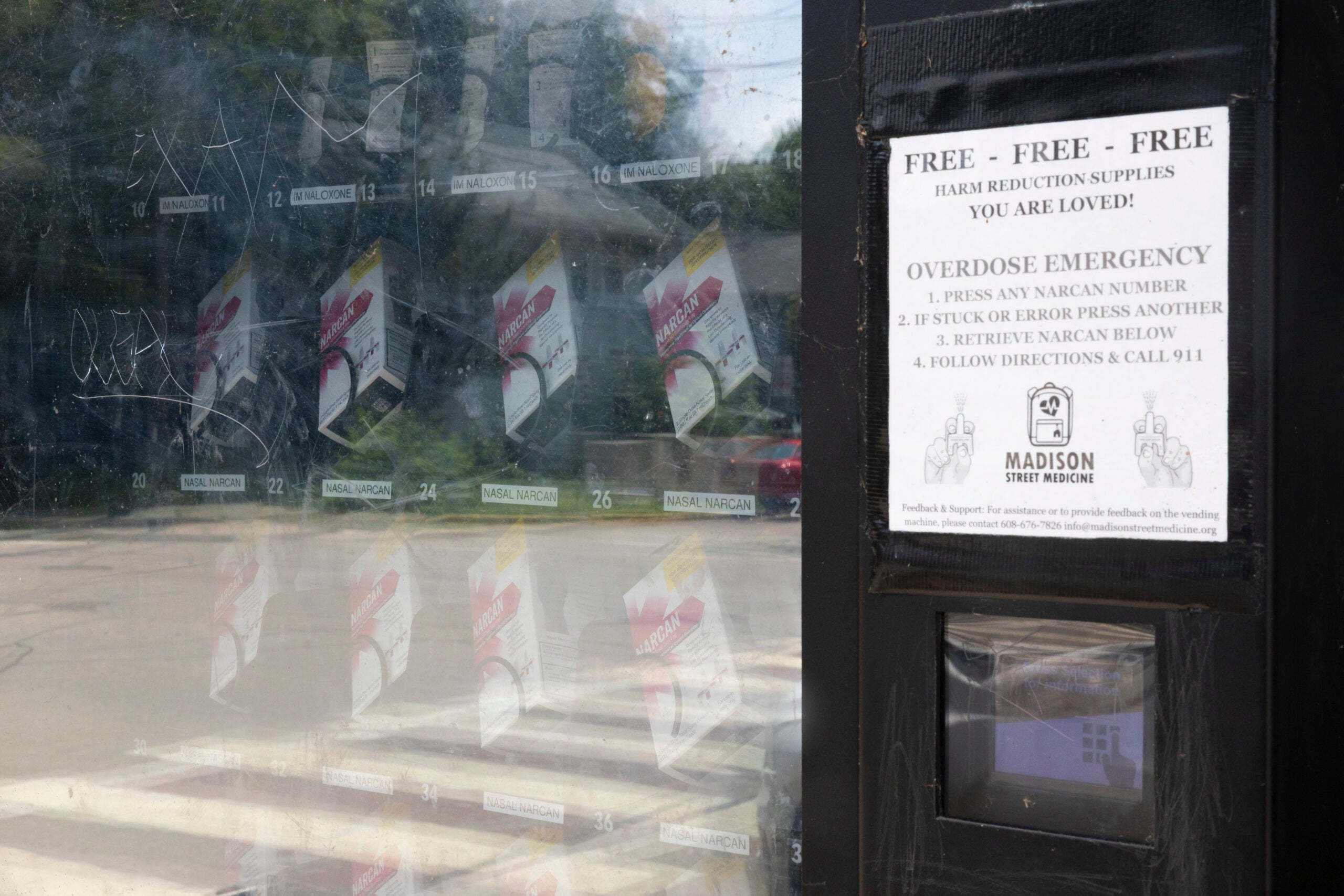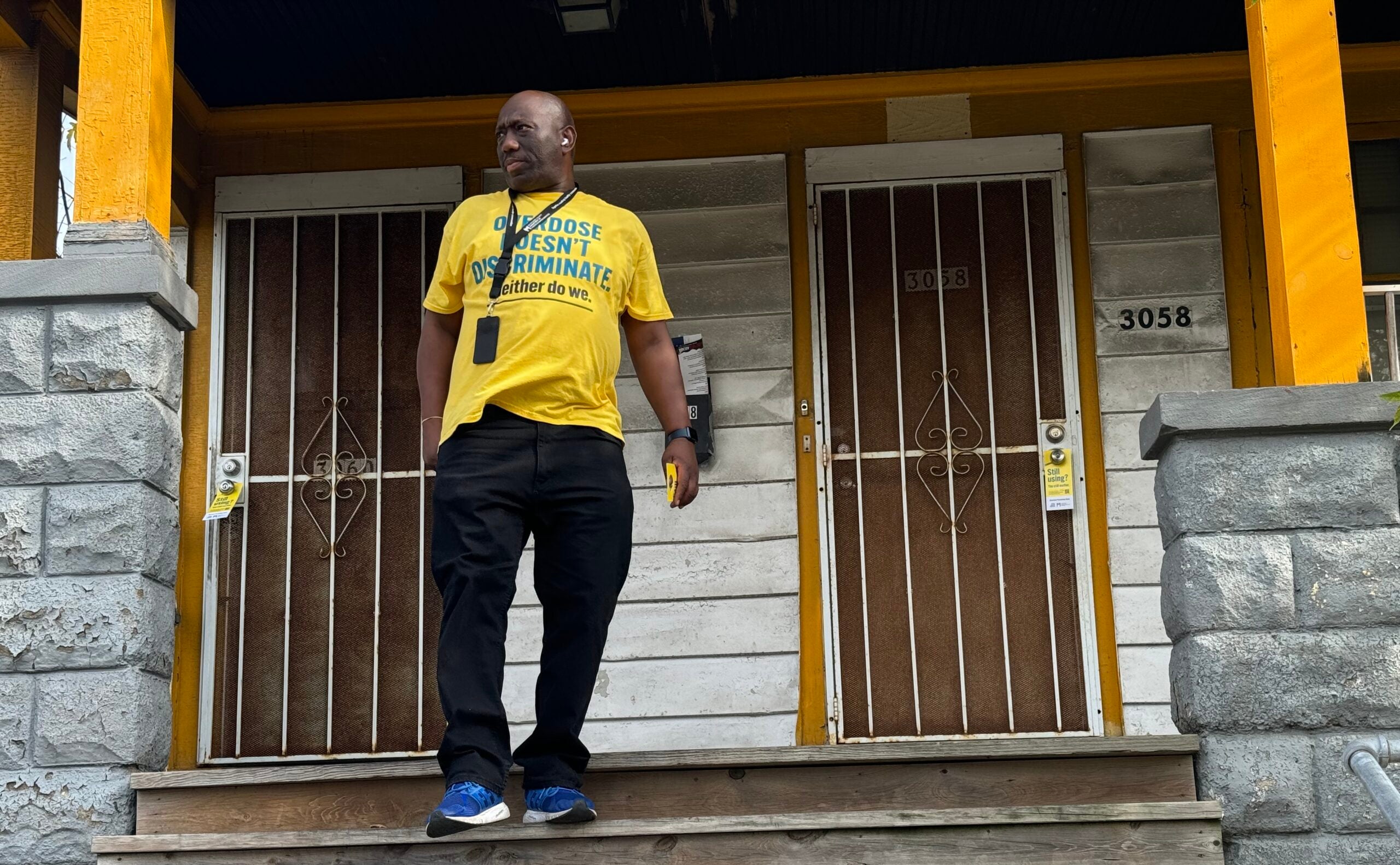The state Senate has sent nine bills aimed at combating opioid abuse to Gov. Scott Walker’s desk.
The measures are part of the Legislature’s ongoing “HOPE Agenda,” which stands for Heroin, Opioid Prevention and Education. These latest bills were also part of a special session convened by Walker based on recommendations from an opioid task force.
The bills would:
News with a little more humanity
WPR’s “Wisconsin Today” newsletter keeps you connected to the state you love without feeling overwhelmed. No paywall. No agenda. No corporate filter.
- Let trained school employees and residence hall directors administer drugs such as Narcan that can treat the effects of an opioid overdose.
- Spend $2.4 million per year to support Treatment Alternative and Diversion programs to support alternatives to prison for people who abuse alcohol or drugs.
- Require a prescription in order to purchase drugs containing codeine.
- Create a small charter school for recovering addicts to be run by the University of Wisconsin System.
- Let the Wisconsin Department of Health Services award grants to hospitals to increase the number of doctors who specialize in treating addiction.
- Spend $1 million per year to create two or three additional opioid treatment programs in underserved areas of Wisconsin.
- Direct DHS to create an addiction medicine consultation program to help doctors caring for patients with substance addiction.
- Spend $420,000 per year on four new criminal investigation agents at the state Department of Justice who would focus on drug trafficking.
- Require the state Department of Public Instruction to establish a mental health training support program to provide school district staff with training on screening, intervention and referral to treatment. It would cost $200,000 per year.
All but one of the bills passed unanimously. Sen. Steve Nass, R-Whitewater, voted against the proposed charter school.
The state Assembly also passed two opioid bills. One would give people who overdose immunity from prosecution if they go to a hospital or call police for help. In exchange, the person who overdosed would have to undergo treatment for addiction.
“So what we’re doing is allowing for the immunity with some exceptions, or some strings attached,” said Rep. John Nygren, R-Marinette, who has taken the lead on opioid legislation.
State law already includes similar protections for people who help overdose victims.
While the bill passed on a voice vote, not all lawmakers were onboard.
“I just can’t support this bill,” said Rep. Samantha Kerkman, R-Powers Lake. “We still are giving immunity to someone who might have killed somebody through heroin.”
Another bill that passed the Assembly on Tuesday would expand an emergency detention program for alcoholics so that it could also be used to treat drug addicts.
Neither of the two bills that passed the Assembly on Tuesday have passed the Senate. Sen. Majority Leader Scott Fitzgerald’s office did not respond to a question Tuesday about whether the Senate would concur with the bills.
Editor’s Note: This story was updated at 8:20 p.m. Tuesday, May 2 to include the bills passed by the Assembly.
Wisconsin Public Radio, © Copyright 2025, Board of Regents of the University of Wisconsin System and Wisconsin Educational Communications Board.







